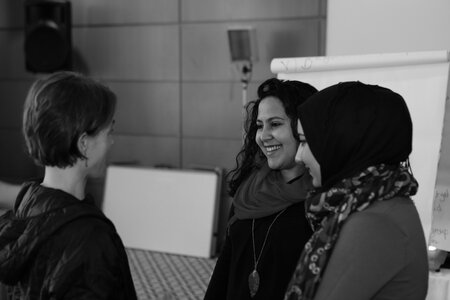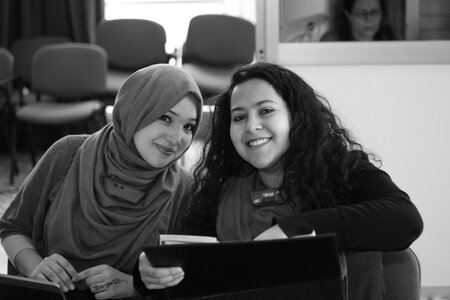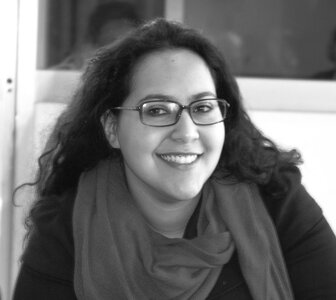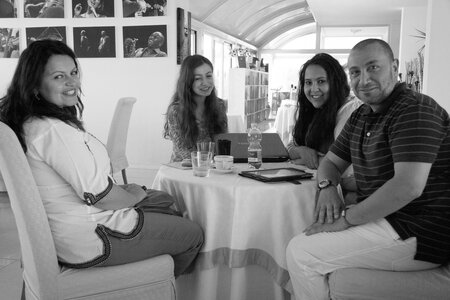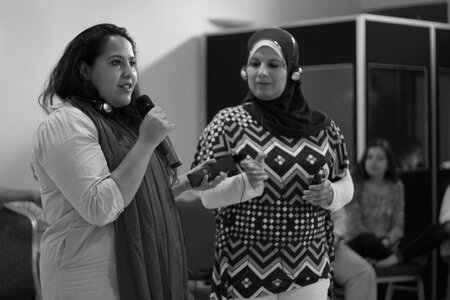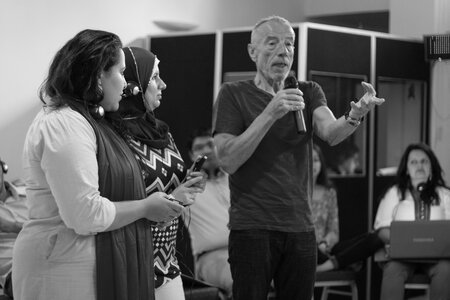Let's talk about reproductive health
Sali Mohsen M. Hafez has co-founded the Arab States Youth Coalition for Population and Development as well as the Egypt Foundation for Youth and Development. She holds a Masters in Global Health and lives in Egypt's second largest city, Alexandria. Sali participated in the Passion and Politics Lab.
Although the 1994 International Conference on Population and Development (ICPD) in Cairo had stressed the ability to autonomously access health services and information about reproductive health as a cornerstone of women empowerment, a great number of women in the Arab world are ill-informed about sexual and reproductive health. Many doctors still only treat women after authorisation through male family members.
The ICPD Beyond 2014 review provided a chance for youth organisations to influence decisions on the actions required to achieve the goals set out in ICPD 1994. This required a coordinated effort to unify the youth voices in the region, through building a structured advocacy mechanism that would enable them to participate meaningfully. Therefore, Sali co-founded The Arab States Youth Coalition for Population and Development, an informal coalition of youth NGOs and groups.
Its first regional meeting took place in Cairo in 2012, involving over 70 youth organisations from all Arab states. The aim was to draw up a position paper that would find its way into the ICPD Beyond 2014 agreements. During the consultations within the Coalition and with stakeholders such as ministries and UN groups, Sali and her fellows faced opposition from many conservative bodies, whose representatives argued that sexual and reproductive issues should not be mentioned in the ICPD agreements.
Thanks to the role plays and experiences in the Passion and Politics Lab, Sali was able to guide the Youth Coalition in the negotiations with those stakeholders who firmly rejected the idea of including a sexual and reproductive health syllabus in the formal educational curriculum: They engaged in dialogue with Islamic scholars and faith-based groups, leading to the solution of recommending the inclusion of reproductive health education in the formal educational system on one condition: the title had to be changed to 'reproductive health education', thus excluding the word 'sexual' – but not the content related to sexual health as an integrated part of reproductive health. Consequently, the Youth Coalition's position paper reflected an inclusive consensus that many stakeholder groups, including Mursi's Islamic government at the time, agreed with.
That way, 80% of the propositions made in the Youth Coalition’s position paper were approved by all member states of the League of the Arab States and found their way into the ICPD Beyond 2014 Cairo Declaration.
The Youth Council's work was not only valued and adopted on policy level – it was also implemented throughout the continent. For example, in Lebanon, sexual health education was included in the national school curriculum in summer 2014.
The success of the Arab States Youth Coalition’s work also took up the cause of youth participation in political processes around the Arab world. In Egypt, a youth advisory task force has recently been established within the National Population Council. This is the first time that a ministry or a higher council has officially included a youth group in its decision-making processes.
"In the Lab, I learned to step back from my own position in a process. The role plays helped me understand that it is important how you address the other parties. These lessons are critical for planning projects, because they help you understand the other side’s reasoning. When you understand the other side, you can change your tone in addressing them."
Sali M. Mohsen Hafez, Co-Founder of the Arab States Youth Coalition on Population and Development
Contributing to the global goals



